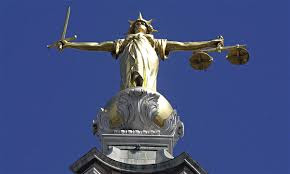
by Legalnaija | Jun 8, 2021 | Uncategorized
In Nigeria today, we have two distinct but simultaneously operating principal codes for the determination of crimes in the country. A code is a statute that largely covers the whole of a particular area of law. The Criminal Code operates in the southern region of the country, while the Penal code operates in the Northern region. This article illuminates the development of the Nigerian criminal laws, as well as its sources.
Prior to the involvement of Colonial masters in the ‘Nigerian’ political system, the spectrum of land that is now known as Nigeria was occupied by peoples who had their diverse ways of dealing with public offences. It is noteworthy that a society without laws will ultimately culminate in administrative anarchy and interpersonal chaos.
The ethnic groups we have known to be part of Nigeria had customary laws that sufficed as a recognizable way of dealing with dissenters. These laws were largely unwritten, apart from the Northern Moslem community, which operated written laws under different structures. A major one among these structures was the Maliki School.
The first interference from the Western world with the customary criminal structure was in 1863, when the Common Criminal Laws were introduced to the Colony of Lagos. No other unique law existed in other territories, but for ordinances enacted at specific times to deal with specific issues. This introduced common law was difficult to obey. It was unwritten and unascertainable.
In 1904, the colonial system under the administration of Lord Frederick Lugard introduced a Criminal Code to the Northern region of Nigeria. Thus, making a tripartite criminal law system in the country, wherein the English Criminal Law obtained in Lagos, the Criminal Code in the North, and indigenous rules in the South. The Criminal code became applicable in the whole of Nigeria in 1916, after the Northern and Southern Protectorates were amalgamated in 1914.
The provision of Section 4 of this code was its major delinquency. This section allowed Native courts to continue in the administration of justice with the use of Native laws. This frustrated the functionality of the code, as different regions could still apply their native laws and archaic systems of punishing convicted offenders.
The section read, “No person shall be liable to be tried or punished in any court in Nigeria, other than a native tribunal, for any offence except under the express provision of the code or some other ordinance or some law or some order-in-council made by his majesty for Nigeria”.
Obviously, the words ‘other than a native tribunal’ already made the lapse for its ineffectiveness in the Nigerian system.
To this effect, Section 4 of the Criminal Code was amended in 1933. However, the amendment did not settle matters, as it was not clear what the powers of the Native Courts were when the provision was read together with the Native Court Ordinance of 1933.
In the case of Gubba v. Gwandu N.A. (1947) 12 WACA 141, the West Africa Court of Appeal held that Native laws could be applied on offences under native laws. But if it was an offence provided for under the code, then the code would apply.
The decision of the court caused controversy, since almost all manners of offences were already provided for under the code. This ruling had, therefore, downgraded the customary criminal laws, as well as the Moslem laws. A committee was enacted to look into this issue. The committee proposed that the customary court could apply customary laws to tried criminal cases, without paying regard to the provisions of the code. This proposition was upheld by the court in a case like Kano Native Authority v. Fagoli (1957).
In Maizabo v. Sokoto N.A. [1957] NLR 133 (FSC), the court held that though native courts could try criminal cases, punishment of offenders are not to be given in excess of the provisions of the criminal code. In other words, native courts could try cases, but punishment was to be in accordance with the provisions of the Criminal code.
This situation was unacceptable to native communities, particularly the Northern region, since the code was not drafted for a Muslim community. We must note that the Criminal Code was modelled on the Queensland Code of Australia, drafted by Sir James Fitzsteven in 1878.
The foregoing led to the introduction of the Penal Code to the Northern Region in 1959. This new Code was modelled on a Sudanese code that had already successfully operated in a Muslim community.
1n 1958, the decision was taken in a constitutional conference to wholly expunge the use of customary laws from the Nigerian criminal law system. Thus, making all Nigerian Criminal Laws written, applicable as provided by the Criminal Code and the Penal Code.
A section of the 1959 Bill of Rights, which became section 22(10) of the Nigerian Constitution, 1963, provides – “No person shall be convicted of a criminal offence unless that offence is defined and the penalty therefor is prescribed in a written law.”
Also, Section 8(3) of the Administration of Criminal Justice Act, 2015, provides, “A suspect shall be brought before the court as prescribed by this Act or any other written law or otherwise released conditionally or unconditionally.”
This was how Nigeria ended up with the two-codes system. The Criminal Code that had existed since 1916 (now operative in the Southern region), and the Penal Code of 1959, operating in the Northern region of the country.
Nigeria has its major source of criminal laws from the two principal codes, namely, the Criminal Code Act Cap C38 Laws of the Federation of Nigeria, 2004, and the Penal Code Cap C8, Laws of the Federation of Nigeria, 2004.
Other sources of the Nigeria Criminal laws include the Constitution of the Federal Republic of Nigeria, 1999, the Criminal Procedure Act (Southern), the Criminal Procedure Code (Northern), the Administration of Criminal Justice Act, 2015, other Statutes and Acts of the National Assembly, international treaties, and case laws.
 Written by: Inioluwa Olaposi
Written by: Inioluwa Olaposi
Inioluwa Olaposi studies Law at Obafemi Awolowo University, Ile-Ife. He founded LawHub NG (https://www.lawhub.com.ng), providing academic law posts and laws of Nigeria. He is interested in development and entrepreneurship.

by Legalnaija | Jul 14, 2017 | Uncategorized
I watched an episode of a
legal series on TV called “the good wife”. On this particular episode, an
accused person is charged with the offence of murder and was looking at a life
imprisonment sentence. He had the option of taking a plea deal of 8 years but
refused because he affirmed he was innocent and was willing to take his chances
with the jury. While the matter was ongoing in court, counsel on the
prosecution and defense side were conferring with the judge on whether a
witness should be allowed to testify in the matter. In the usual rapport of
lawyers and judges, they argued and eventually turned this into a joke and were
seen laughing heartily while the accused person looked on, confused as to what
could be really funny while his life hangs in the balance.
He looked at the
jury and members of the gallery with tears in his eyes, no one looked at him
more than a criminal charged for killing a person. I guess it was at this point
he decided there was no way the case was going to go his way. He looked around
and saw the gun of the officer in court exposed. He managed to get it and ended
up shooting a number of people in the court room, his lawyer and tried killing
himself but he was out of bullet. Suffice to say this is a sad outcome but not
totally shocking given the psychological state of mind of an accused person
especially an innocent one.
My job as a first-year
state counsel at the department of public prosecution exposes me to a lot of
criminal prosecution. I get to see accused robbers, murderers, child-molesters
and the likes of them in the prosecution of offenders in pursuit of the
administration of criminal justice. I observe that the usual countenance of the
officers of the state, the police, the warders that keep these accused persons
in custody is usually one of guilt and indifference; and this is before they
have been convicted by the court.
I have observed lawyers in
court converse with their colleagues, Judges, Investigating Police Officers
(IPO), families of the accused person in a way that is very indifferent to the
course of the accused while the latter looks on sadly often times physically
and emotionally drained from his place at the dock. For some reasons, his
lawyer after arguing sternly about the unfairness of not responding to an application
by the opposing party leading to a further delay in his incarceration and
count-down to his acquittal still manages to share a hearty laugh with his
colleague just shortly after been upset. I would often look at the dock to see
how they feel. Does this person feel like his lawyer or the judge doesn’t care
enough for his situation to find humour in his very saddening situation?
I know that as lawyers we
are taught in school and in the course of early practice to learn to distance
our personal feelings from our jobs. I think however that we need to do more.
We need to care more. A person living in a deplorable state in incarceration
while his life hangs in the balance doesn’t understand that you do this every
day and it is usual to see criminals now and then hence your immunity. If we
are to even consider a state where opposing party doesn’t care whether an
accused person is innocent or guilty I think it is the duty of his own lawyer
to do more. It is absolutely unfair and cruel to laugh at silly things in court
while your client is unsure of his future survival.
The job of a lawyer is not
only to ensure exoneration of his client, he also owes him a duty of care; a
humane feeling towards his plight when the latter is going through the process.
This I believe will to a large extent reduce depression and suicidal thoughts
from the state of mind of an accused person.
Ed’s Note – This article
was originally posted here
Photo Credit – websitetemplate.info

by Legalnaija | Jun 22, 2016 | Uncategorized
 |
| Photo – 123rf.com |
Kunle
Aminu Eze, was accused of armed robbery. It was alleged that he and 5 other
people accosted John, a gold merchant just returning from the bank and robbed
him of N15,000,000 (Fifteen Million
Naira). Kunle Aminu Eze was identified by a witness to the crime who claimed
she recognized him as a regular client of an auto-mechanic in her neighbourhood
and described how Kunle Aminu Eze had led the gang by shouting orders. Kunle
Aminu Eze however expressed his innocence and claimed to have been with his
girlfriend in Lokoja when the act occurred. The matter went to trial before the
High Court and Kunle Aminu Eze was sentenced to life imprisonment.
There are many legal
elements to the scenario above including; the crime, the testimony of the
witness, the accused person’s defence and also the conviction. This post will
however be taking a look at the 3rd stated element, which is the
accused person’s defence. How come he had been convicted for the crime even
though he claimed to have been in Lokoja, when the crime was committed?
The word Alibi in its original
latin context as an adverb, means “elsewhere”. The Eight edition of the Black’s
Law Dictionary defines it as “a defence
based on the physical impossibility of a defendant’s guilt by placing the
defendant in a location other than the scene of the crime at the relevant time”.
In essence, the accused person’s alibi from our scenario was that he was
somewhere else with his girlfriend at the time of the armed robbery, how come
he was then convicted?
In the case of Ogoola V.
The State (1991) 2 NWLR (Pt. 175)509, the court held that “it is not a proper
way of raising a defence of alibi for an accused to merely show that he was
elsewhere at a time antecedent to the time the crime was proved to have been
committed. He must go further to show that because he was at that place at that
time, it was impossible for him to have been at the scene of the crime when it
was shown to have been committed.”
The essence of the above
decision is that when an accused person claims in his alibi to have been
elsewhere, he must further prove that he was indeed elsewhere.
To further illustrate, the
court in Obiode V. The State (1970) 1 ALL NLR 35 stated that “the law is that it is not enough for an
accused to raise the defence of alibi at large. He must give adequate
particulars of his whereabouts at the time of the commission of the offence to
assist the police to make a meaningful investigation of the alibi. If the
accused person said he was in a particular locality or with a particular person
or persons, he must give a lead as to the specific place, the names and/or
addresses of whom to contact and the relevant period he was away from the scene
of the crime.
It must also be noted that
if the alibi is however contradicted by the prosecution and sufficient proof is
given to rebut the alibi, then the defence fails. For instance, Kunle Aminu Eze
from our scenario merely stated that he was away from the scene of the crime in
Lokoja. He never gave the name or address of the girlfriend he was with,
neither did the girlfriend testify on his behalf or write a statement
supporting his case.
However, the prosecution
was able to tender the statement of the eye witness who described how Kunle
Aminu Eze had not only been at the scene of the crime at the material time, but
had participated in the crime and was in fact the ring leader of the group of
robbers as he was the person shouting orders to the other members.
In a nutshell, for the
defence of alibi to be successful, such defendant must prove his alibi with
supporting facts such as details of where he was and whom he was with and also
the prosecution must not have superior facts to counter the alibi.
Dunmade
Onibokun Esq.
Adedunmade Onibokun and Co.

 Written by: Inioluwa Olaposi
Written by: Inioluwa Olaposi


